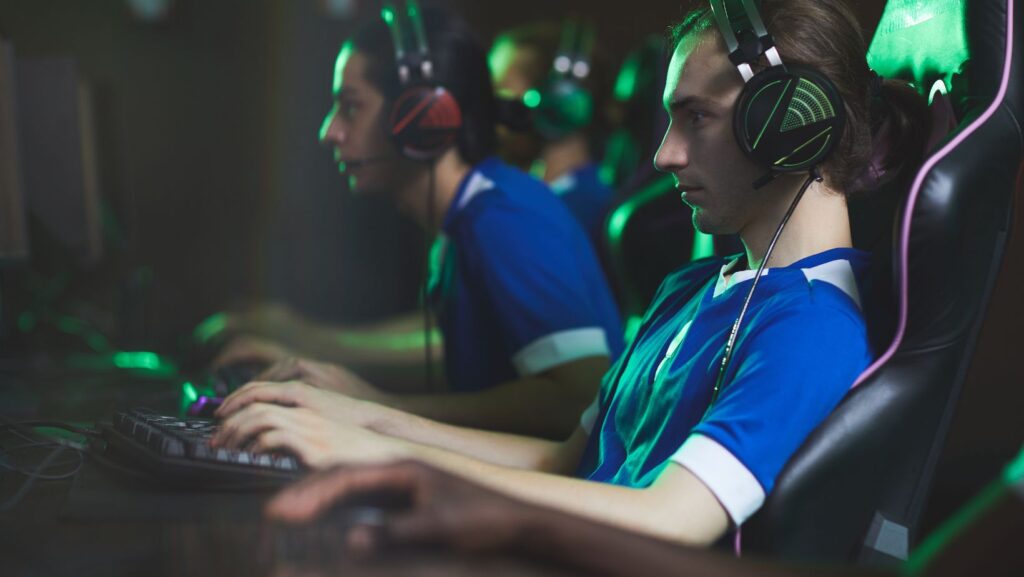Traditional Chinese lucky numbers play a significant role in shaping esports betting behavior. These numbers, such as eight and six, symbolize wealth and success, influencing bettors’ strategies and choices. Cultural associations with lucky numbers provide a psychological edge, fostering a sense of control in the unpredictable world of gaming. Bettors often integrate these numbers into their wagers, reinforcing their cultural identity and community ties. Additionally, as esports betting evolves, the incorporation of traditional practices may offer new avenues for strategic engagement. Exploring this unique intersection of culture and modern gaming reveals deeper insights into its impact on betting patterns.
Understanding Lucky Numbers
What constitutes a “lucky number” in traditional Chinese culture? At the core of this concept lies numerical symbolism, where specific digits hold significant meanings that transcend mere arithmetic. For instance, the number eight (八, bā) is revered for its phonetic resemblance to the word for wealth (發, fā), while six (六, liù) is celebrated for connoting smoothness and success. Conversely, four (四, sì), which sounds like the word for death (死, sǐ), is often regarded as unlucky.
This cultural inclination toward particular numbers exemplifies the psychological influence of belief systems on behavior and decision-making. Individuals frequently align their choices, from dates to phone numbers, with these auspicious digits to harness good fortune. This alignment can create a sense of control and optimism, especially in competitive environments like esports betting, where uncertainty reigns.
In essence, understanding lucky numbers in traditional Chinese culture is not merely about superstition; it reflects a deeper psychological engagement with numerical meanings that inform personal narratives and collective identities.
Cultural Significance in Betting
The cultural significance of lucky numbers in esports betting Singapore is profound, shaping not only individual choices but also influencing broader market trends within the esports industry. Traditional Chinese cultural beliefs often imbue specific numbers with positive connotations, impacting how players and bettors approach their decisions.
This intertwining of cultural symbolism and betting psychology creates a unique landscape where participants feel compelled to align their strategies with these beliefs, seeking to harness perceived luck.
As esports continues to grow, understanding the cultural frameworks that inform betting behaviors becomes essential. Bettors may gravitate towards numbers like 8, which are viewed as auspicious, believing that their success is not just a matter of skill or chance but also of aligning with favorable cultural narratives.
This psychological aspect can lead to the phenomenon where market trends reflect heightened betting activity around these culturally significant numbers, demonstrating the interplay between cultural beliefs and economic behavior.

Ultimately, the cultural significance of lucky numbers in betting transcends mere superstition; it serves as a lens through which bettors navigate their experiences, revealing deeper insights into the human psyche and the motivations driving engagement in the esports betting arena.
Popular Lucky Numbers in Esports
In the domain of esports betting, certain numbers emerge as particularly favored among participants, reflecting a blend of cultural significance and psychological tendencies. Among these, the numbers 8 and 9 frequently stand out, rooted in traditional Chinese beliefs where 8 symbolizes prosperity and 9 denotes longevity. These lucky number patterns resonate deeply with bettors, often influencing their choices when placing wagers.
Player superstitions further amplify the allure of these numbers. Competitors and fans alike may adopt specific digits as their “lucky” identifiers, believing that these selections can sway the outcome of matches in their favor. This phenomenon is not merely anecdotal; it underscores a broader psychological principle where individuals seek control and predictability in an inherently uncertain environment.
Moreover, the impact of lucky numbers transcends individual preferences, permeating team identities and branding. Teams may incorporate these numbers into their logos, jerseys, or even player roles, fostering a collective belief in their power.
As esports continues to evolve, the intertwining of cultural numerology and competitive gaming will likely deepen, creating a richer tapestry of beliefs that shape the betting landscape.
Strategies Incorporating Lucky Numbers
A growing number of esports bettors are strategically incorporating traditional lucky numbers into their wagering decisions, reflecting a nuanced understanding of both cultural significance and psychological impact. This trend illustrates a broader move towards integrating cultural elements into the betting landscape, where number selection becomes a pivotal component of strategy.
By analyzing historical data and recognizing prevailing betting patterns, bettors can leverage lucky numbers to enhance their decision-making processes. For instance, numbers associated with prosperity, such as 8, might be favored for their auspicious connotations, while 4, often seen as unlucky, may be avoided. This conscious number selection not only aligns with traditional beliefs but also serves to bolster a bettor’s confidence, influencing their overall approach to wagering.
Moreover, the incorporation of lucky numbers can foster a sense of community among bettors who share similar cultural backgrounds, creating a collective strategy that amplifies the psychological benefits of such beliefs.
Ultimately, this blending of tradition and modern betting practices exemplifies how cultural nuances can enrich the esports betting experience, encouraging bettors to engage with their choices on a deeper level.
Future of Tradition in Betting
As esports betting continues to evolve, the integration of traditional practices, such as the use of lucky numbers, signals a potential shift in how bettors engage with their strategies.
The future of betting may witness a confluence of emerging trends that blend age-old traditions with the relentless advancement of technology.

As digital platforms innovate, the accessibility of traditional cultural elements will likely enhance the betting experience, allowing players to personalize their approach based on historical significance.
The impact of technology on user experience could lead to sophisticated algorithms that incorporate lucky numbers into predictive models, thereby creating a unique fusion of data-driven analysis and cultural resonance.
Furthermore, as global audiences increasingly embrace esports, a greater appreciation for diverse betting practices will emerge.
This shift could democratize strategies, empowering bettors to exercise their freedom of choice while remaining connected to their cultural roots.
The future of tradition in betting is poised for transformation as both established and novice bettors explore the possibilities that arise from integrating conventional beliefs with modern gaming.
In this evolving landscape, the role of lucky numbers could redefine how strategies are conceived, ultimately enhancing the appeal of esports betting.
Conclusion
The integration of traditional Chinese lucky numbers into esports betting illustrates the confluence of culture and modern gambling practices. These numbers serve not only as symbols of fortune but also as strategic tools for bettors maneuvering this rapidly evolving landscape. As the esports industry continues to grow, the enduring relevance of cultural beliefs in shaping betting behaviors cannot be overlooked. Future research should further explore how traditional practices influence decision-making in contemporary betting environments, potentially offering insights into broader gambling trends.


